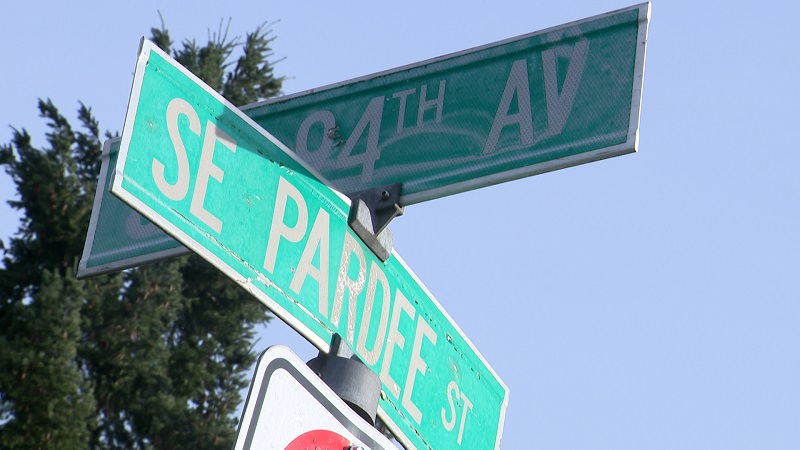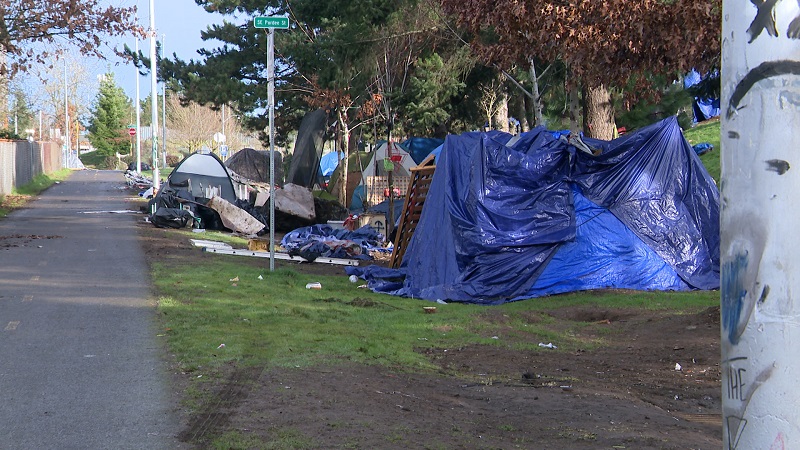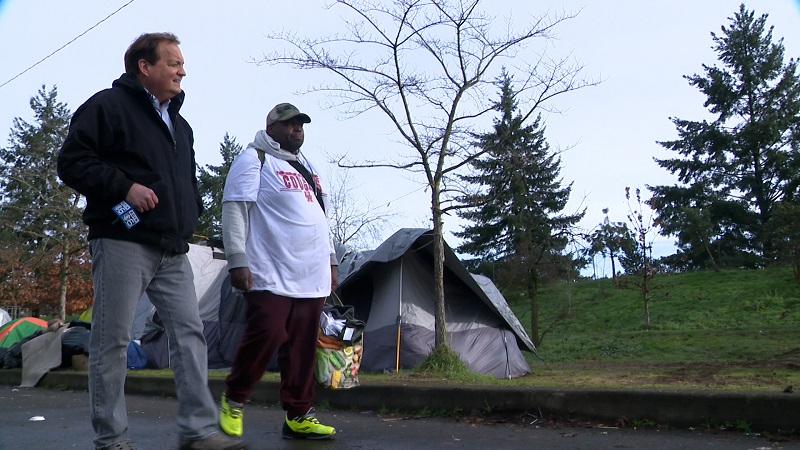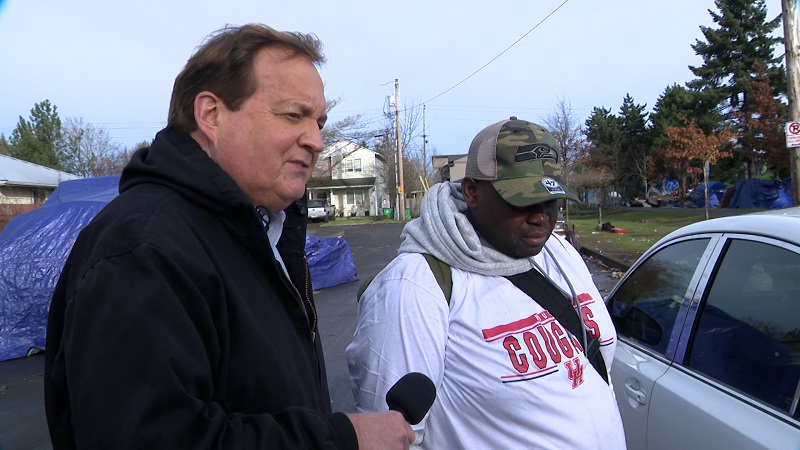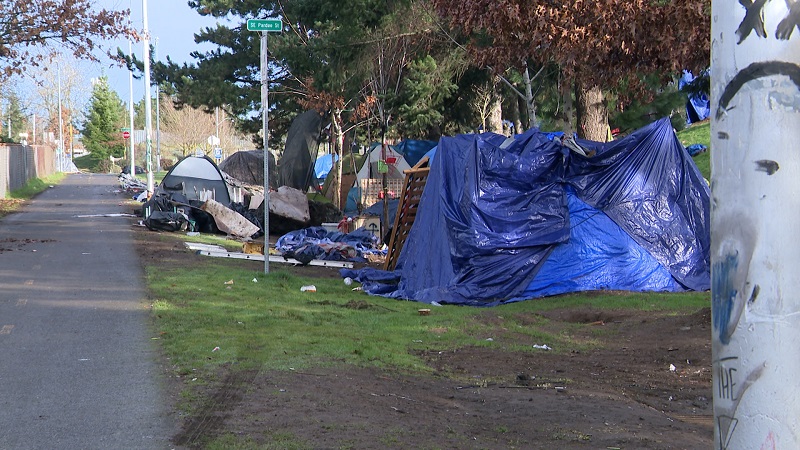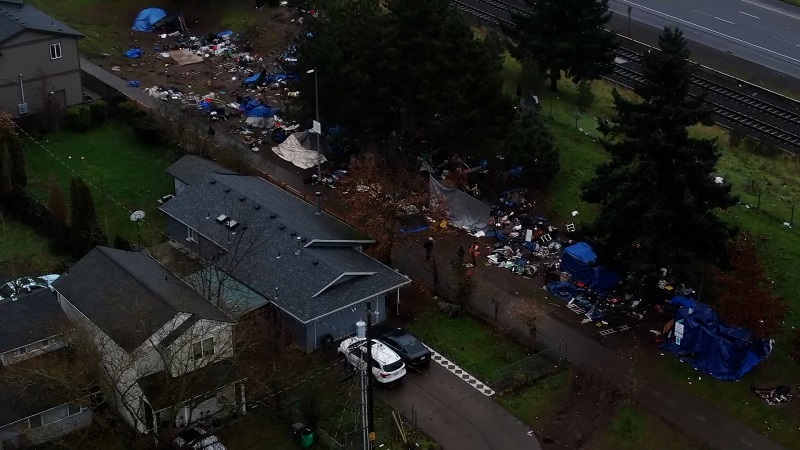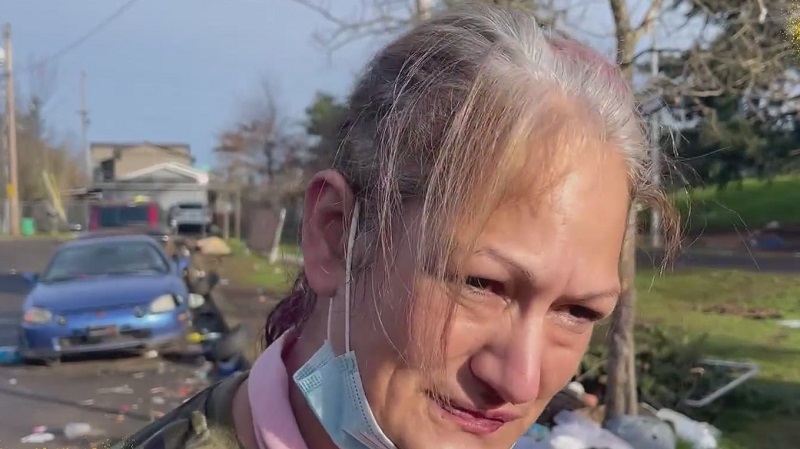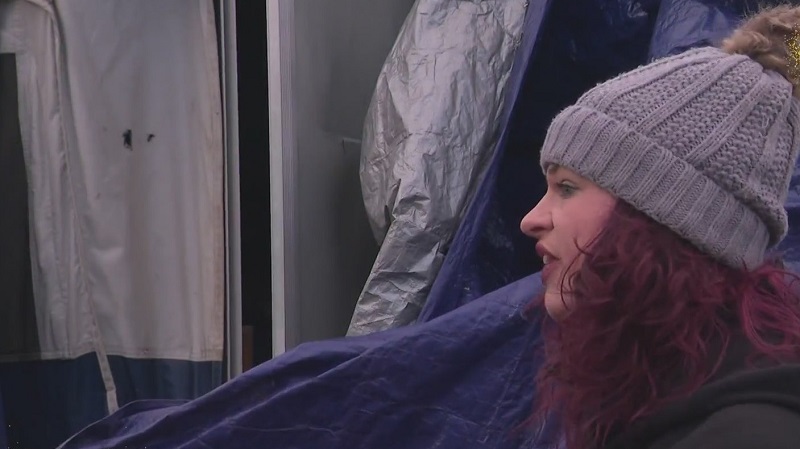PORTLAND, Ore. (KOIN) — It’s not possible to deny the stark reality of what Portland’s other epidemic looks like, from the sky and from the ground. It spreads across the city into neighborhoods, along streets, alongside highways, next to homes. Unlike COVID, there is no vaccine, no booster. And it’s getting worse.
Men and women live in makeshift shelters, in tents, under tarps, existing among piles of garbage and filth. Some are in broken down trailers parked along the street, surrounded by heaps of personal belongings, trash and rats.
The rats have now invaded nearby homes. The residents have seen their neighborhood become a human disaster zone. Needles litter the sidewalks. Neighbors threatened by some of the campers living on their street. They don’t feel safe. It’s a health hazard. Their pleas for help ignored.
This is the story of Lehua, Marshall, Bobby, Todd, Mari, Martin, Will and Ashley.
This is what Portland’s human tragedy looks like. Welcome to Southeast 94th and Pardee.
Lehua
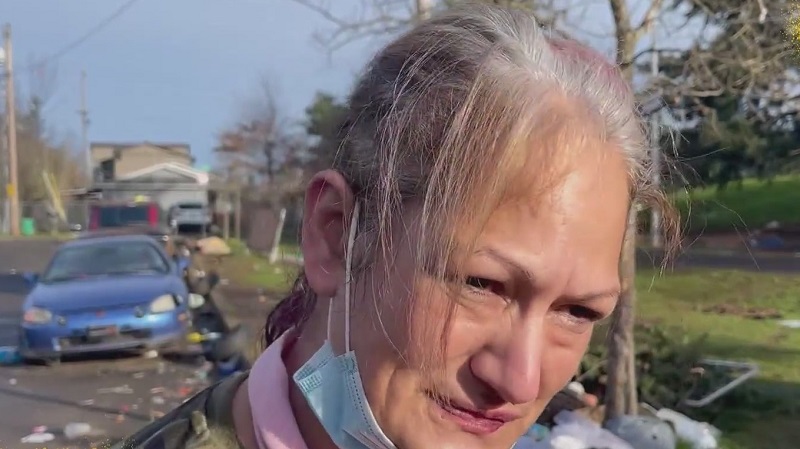
Lehua doesn’t want to be here. She didn’t choose to be homeless. “A roommate didn’t pay rent, so therefore we couldn’t catch up. It was already too far gone. We couldn’t catch up.”
She’s been at SE 94th and Pardee since the summer.
“When they moved people over from that area, they all came over here and we all kind of got bunched together. And now I think it’s because we all followed the rules, like the 6-feet-apart stuff, you know, so, like, they weren’t really bothering us,” Lehua said. “Now there’s a bunch of trash here. Before a bunch more people, that wasn’t here before. So now we all have to move.”
She also said a lot of this trash isn’t from the campers. “It’s people coming here to dump their trash that have homes, dump their trash here and we get blamed for it.”
On this particular morning in mid-January, Lehua has to make a decision. The City of Portland posted notice declaring this an illegal campsite. Campers have 10 days to move. Crews are set to clean up the site the next day.
Lehua is not surprised. She’s been through this routine before.
“Now and then these people come and they’ll take all your stuff and they’ll pack it all up for you. It doesn’t matter if it’s garbage or whatever it is. They’ll pack it into one thing and you can come and they’ll have it, they’ll leave it out here on the trail for a few days. And if you don’t come and get it by then they’ll take it to a locker. So that means anyone can come by and take your stuff, so whatever you did have is gone.”
The green notices posted by the city are hard to see, she said.
“The way they post those notices is ridiculous. They post them back in the trees where no one can see them.”
The clean up began early the next morning. A yellow box truck arrived. Rapid Response clean up teams clean the campsites of trash and garbage. They pack the truck full. But their efforts only focus on the area where the notices were posted.
Mostly of the homeless who were at this spot simply moved a few feet up or down the trail. Lehua and her boyfriend didn’t leave. She is staying in a trailer parked on the street.
The following morning, piles of garbage and debris replaced the tents and tarps. Cleanup crews will return in a few days to pick up what’s left.
Marshall
Marshall said he packed everything up during the clean up but didn’t move. “Just kind of waiting to see what happens,” he said. “Just pretty much playing it by ear.”
He’s been homeless for 7 years. He used to have a good job but things spiraled out of control. He now has addiction issues. Marshall said living on the streets “is all hard. It doesn’t get any easier but, I mean, you either roll with it or get run over. I mean, what are you going to do?”
He said there hasn’t really been any outreach to help him get temporary or permanent housing. “Not really. Not that I’ve noticed or not to me personally.”
Bobby
Bobby said he suffers from depression and has been homeless for “about 4 or 5 years.” Everyday, he said, he sets goals, “small goals. It’s everyday, set a goal.”
When the cleanup crews came through, Bobby moved along. For the moment.
“Until that sheriff rolls up, man, I mean I leave. No conversation. Then I come back,” he said. “Not exactly that same spot but, you know.”
Todd
Residents in the neighborhood have dealt with this for years. After every clean up the cycle starts all over again. Where is the line between compassion and tolerance?
“Honestly they’re wasting their time and taxpayer money,” Todd said. “These people are going to be right back. This city does not have compassion for these people or compassion for us. These people need help.”
Todd lives in the heart of SE 94th and Pardee. He’s outspoken about the city’s lack of response.
“I’m not going to offer an excuse for why we are forgotten. It’s clear that we’re forgotten. It’s clear that the city does not care. They have no compassion. They have no compassion for us, the neighbors or the people that are on the streets being assaulted every night.”
Mari
Mari feels unsafe in her own neighborhood. She can’t let her children play outside.
“I can’t let my kids ride on that beautiful trail that’s very long. It’s not so beautiful anymore because it’s scary,” she said. “So many homeless people there.”
She said some homeless people have entered her fenced yard. “That’s why I have to lock all my backdoor windows with wood, just in case I don’t know what I’m dealing with. I have a big yard and I can’t let them out and play. How is that possible? It’s not fair.”
Something else has moved into the neighborhood.
“There’s too much garbage and so we were having a rat problem, including just yesterday when my father-in-law that lived with us went to turn on his car. He opened up the hood of his car and there’s rats inside there, too.”
Share your thoughts with us on our “Is Portland Over?” series by emailing us at isportlandover@koin.com
Martin
Martin said he’s compassionate toward the homeless but said what’s happening at SE 94th and Pardee wouldn’t be tolerated in other parts of the city.
“I’ve lived in this neighborhood for over 40 years. I haven’t ever seen it like this,” he told KOIN 6 News. “I understand that people are homeless and I understand there is some that have and some that don’t and they need it, but we have a crime situation in our way. We have stolen cars back there. They steal the catalytic converters off cars (from) my neighbors left and right. And we have needles. We have prostitution. We have a guy that’s got a bike situation where you’re stealing bikes.”
The clean-up that just happened doesn’t mean anything, he said.
“It’s like a band-aid. They’re there for that moment and you take the band-aid off and you still got the wound.”
Will and Ashley
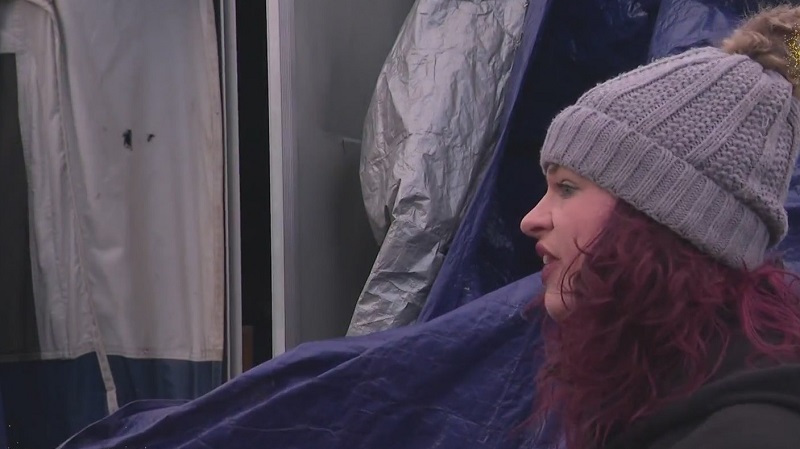
For about 4 months Will and Ashley have lived in a dilapidated trailer parked on the street. They used to live in a tent across the street. They didn’t have to move when the clean-up crews came by.
“No, no, we didn’t because we are not in a tent, technically,” Will said. “So they never told us to move because we were on the street in a trailer.”
“This is the last thing we wanted, you know what I mean?” Ashley said. “It’s still hard to do the simple stuff, like charge your phone, wash your hands, your face.”
Over the past 2 years, Will and Ashley faced one crisis after another. They couldn’t pay rent. They lost jobs. There were family issues. There was COVID. They have 2 children now living in foster care. Ashley’s 2 other children from a previous marriage now live with her former husband.
“I spent as much money as long as I could on hotels for us before we were waiting to get into programs,” Ashley said. “The list for a lot of the shelters were full and it took maybe 2 months. It was really fast and it sucked because we had no control over it. We had no control over it.”
Tents are back
At Southeast 94th and Pardee the tents are returning to the site that was just cleaned up. More will pop up. The garbage and human debris will start piling up again.
And Portland’s cycle of human tragedy will repeat itself.
